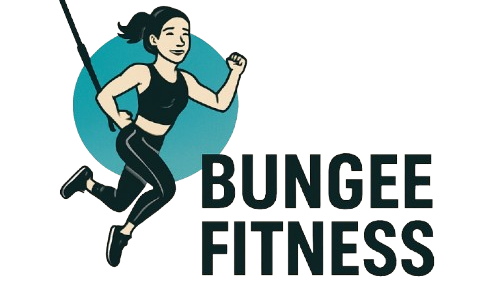Can Protein Help With Weight Loss While Using Ozempic?
Using Ozempic has become increasingly common among people managing type 2 diabetes and those looking for a reliable way to support weight loss. Ozempic (semaglutide) is a GLP-1 receptor agonist that helps regulate blood sugar and reduce appetite, often resulting in significant weight reduction.

However, while using Ozempic, many people unintentionally consume fewer calories and nutrients — particularly protein. Over time, this can lead to a gradual loss of lean muscle mass, which may slow metabolism and affect overall strength.
To maintain a healthy balance and ensure long-term success, it’s important to understand how protein supplementation can support your body while taking Ozempic. Below, we explore how the medication affects your metabolism and why adding protein to your diet is essential for lasting results.
How Ozempic Affects the Body
When using Ozempic, your body experiences several metabolic adjustments. The medication works by mimicking the GLP-1 hormone, which promotes insulin secretion, slows digestion, and helps control blood sugar levels. It also reduces appetite by acting on the brain’s hunger centers, which is why many users find themselves eating much less than before.
While reduced appetite supports weight loss, it can also mean a lower intake of essential nutrients — especially protein. When your body doesn’t get enough protein from food, it may start breaking down muscle tissue for energy. Losing muscle not only affects your strength but can also reduce your resting metabolic rate, making it harder to maintain weight loss over time.
Adding protein supplements while using Ozempic helps counter this effect, supporting muscle maintenance, energy levels, and a more balanced body composition.
Why You Need Protein Supplements When Using Ozempic
1. Protect Muscle Mass
One of the key benefits of protein supplementation while using Ozempic is the prevention of muscle loss. Weight loss naturally involves losing both fat and lean tissue, but protein helps minimize the loss of muscle.
Protein supplies the amino acids your body needs for muscle repair and maintenance. Because Ozempic often reduces appetite, it can be challenging to eat enough protein-rich foods each day. Supplements such as whey, casein, or plant-based protein powders provide an easy and effective way to meet your needs without overloading your digestive system.
2. Support a Healthy Metabolism
Muscle tissue plays a central role in keeping your metabolism active. The more muscle you have, the more calories your body burns throughout the day. When using Ozempic, your lower food intake might cause a dip in your metabolic rate.
Regular protein supplementation helps maintain lean muscle, which in turn supports a steady metabolism. This promotes consistent, sustainable weight loss rather than quick results that are difficult to maintain.
3. Improve Satiety and Manage Cravings
Even though Ozempic naturally suppresses appetite, you may still experience hunger or cravings, especially as your body adapts. Protein helps you feel fuller for longer, reducing the temptation to snack or overeat.
A protein shake between meals or after exercise can help balance blood sugar, improve satiety, and make it easier to stay consistent with your nutrition plan.
4. Aid Recovery and Exercise Performance
Many people who begin using Ozempic also start incorporating regular exercise into their routines. Whether it’s walking, resistance training, or other forms of activity, your muscles need protein to recover and grow.
Protein supplements provide a convenient way to refuel after exercise, supporting faster recovery, reduced soreness, and improved physical performance. Even if your appetite is low post-workout, a simple shake ensures your muscles get the nutrition they need.
The Importance of Protein Supplementation
Meeting Nutritional Needs on Fewer Calories
When using Ozempic, most people naturally eat less. While this supports weight loss, it can make it difficult to meet your daily protein requirements through food alone. Protein supplements provide a simple, efficient way to maintain proper nutrition, even with smaller meals.
A single serving of protein powder typically contains 20–30 grams of high-quality protein, which helps fill the gap between what you eat and what your body requires.
Supporting Healthy, Sustainable Weight Loss
The goal of healthy weight loss is to reduce fat while maintaining muscle. Protein supplementation helps achieve this balance. It ensures your body burns fat for energy while preserving lean tissue, leading to better strength, a higher metabolism, and improved overall results.
Without adequate protein intake during Ozempic use, you may lose muscle mass along with fat, which can lead to fatigue and make it harder to sustain your progress over time.
Maintaining Skin, Hair, and Nail Health
Protein isn’t just important for muscle — it’s also essential for skin, hair, and nail health. Rapid weight loss can sometimes lead to nutrient deficiencies that affect your appearance. Protein provides the amino acids needed for collagen production, supporting skin elasticity and a healthy, youthful look.
Supporting Energy and Hormone Balance
Some people report feeling tired or low on energy when they first start using Ozempic. Protein helps stabilize energy levels by balancing blood sugar and supporting the production of important hormones. Including a quick-digesting protein source can help you stay energized and focused throughout the day.
How Much Protein Do You Need?
Your ideal protein intake depends on factors such as your weight, age, activity level, and overall goals. In general, experts recommend 1.2 to 2.0 grams of protein per kilogram of body weight each day for anyone trying to lose weight while maintaining muscle.
For example, if you weigh 70 kilograms, you should aim for between 84 and 140 grams of protein daily. If your appetite makes it difficult to reach that target through meals alone, adding one or two protein shakes each day can make a meaningful difference.
Choosing the Right Protein Supplement
When selecting a protein supplement while using Ozempic, consider your dietary preferences, digestion, and overall wellness goals. Here are some good options:
Whey Protein Isolate
Fast-digesting and rich in essential amino acids, whey isolate is ideal for post-workout recovery or as a quick meal replacement.
Casein Protein
A slower-digesting protein that provides a steady release of nutrients. Great before bedtime to support muscle repair overnight.
Plant-Based Proteins
Pea, soy, and rice protein are excellent alternatives for those who prefer or require a dairy-free option. Many blends offer complete amino acid profiles similar to animal-based sources.
Collagen Peptides
Collagen helps maintain joint, skin, and connective tissue health. It’s particularly helpful for those experiencing changes in skin elasticity during weight loss.
Simple Ways to Increase Protein Intake
- Start your day with protein: Begin with a shake or protein-rich breakfast to boost metabolism and support stable blood sugar.
- Add protein to snacks: Mix protein powder into yogurt, smoothies, or oatmeal for an easy increase.
- Include protein at every meal: Combine supplements with lean meats, eggs, legumes, or dairy products.
- Stay hydrated: Adequate water supports protein metabolism and helps manage Ozempic-related side effects like nausea.
- Track your intake: Monitor your protein consumption and adjust based on how you feel and the progress you see.
Common Mistakes to Avoid
When using Ozempic and supplementing with protein, avoid these common issues:
- Skipping meals entirely: Even with reduced appetite, your body still needs consistent nutrients.
- Relying only on supplements: Use protein powders to complement a balanced diet, not replace it.
- Neglecting hydration: Drinking too little water can worsen common side effects.
- Choosing poor-quality products: Look for third-party-tested, low-additive protein powders with a high protein-to-calorie ratio.
Conclusion
Using Ozempic can be a valuable tool for improving blood sugar control and achieving weight loss goals. However, because it naturally reduces appetite, it’s easy to fall short on important nutrients like protein.
Adding high-quality protein supplements to your daily routine helps maintain lean muscle, support metabolism, and enhance overall well-being. Whether you prefer whey, plant-based, or collagen protein, choosing the right supplement can make your Ozempic journey more balanced, healthy, and sustainable.
With mindful nutrition, hydration, and regular activity, you can experience the full benefits of using Ozempic while preserving your strength, energy, and long-term health.






